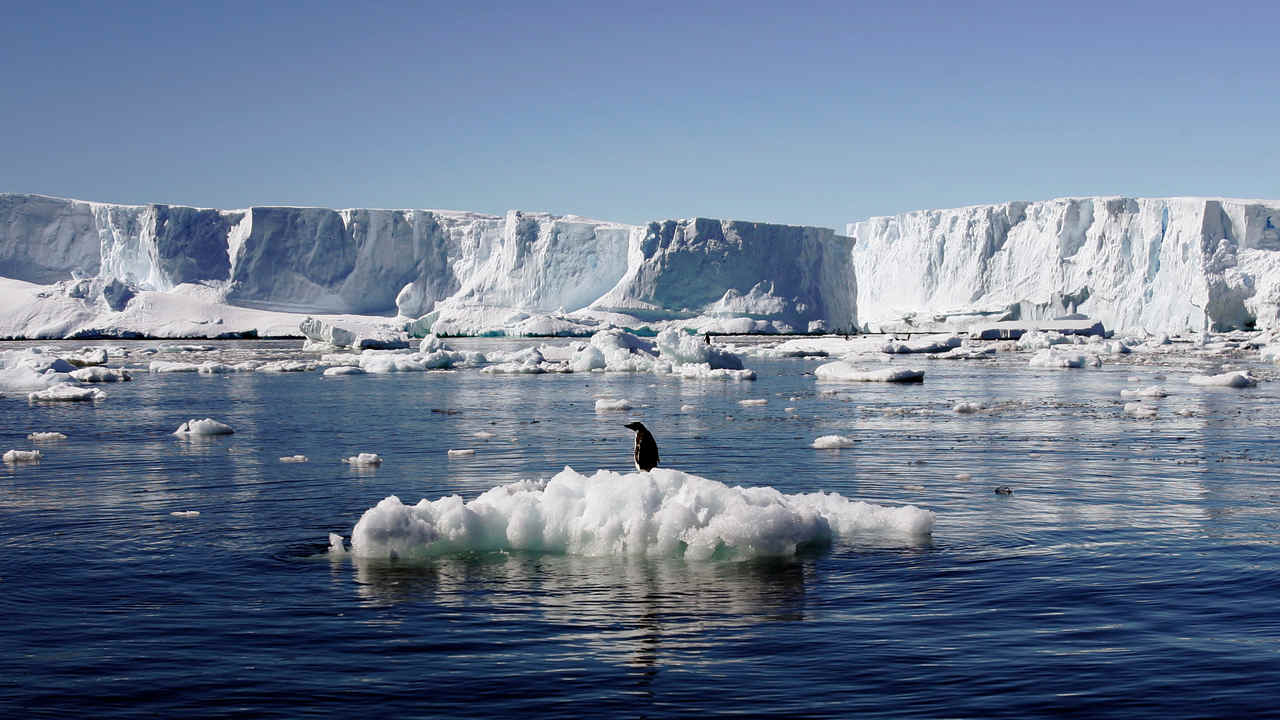More than half the ice shelves ringing Antarctica that prevent huge glaciers from sliding into the ocean and lifting sea levels are at risk of crumbling due to climate change, researchers said Wednesday. Melt water running into deep fissures caused by warming air is undermining the structural integrity of these natural barricades, they reported in Nature. “If the ice shelves fill up with melt water, things can happen very quickly,” said co-author Jonathan Kingslake, a glaciologist at Columbia University’s Lamont-Doherty Earth Observatory. “There could be major consequences for sea levels.” Scientists are especially concerned about the weakened state of ice shelves holding back West Antarctica’s Pine Island and Thwaites glaciers which could, if destabilised, raise global oceans by more than three metres. The two glaciers cover an area larger than Germany. Up to a kilometre thick, ice shelves are the solid ice extension of land-bound glaciers. Because they are already floating on ocean water, they do not add to sea level when huge chunks break off as icebergs. But the far more massive glaciers – part of the Antarctic ice sheet – they block from sliding toward the sea have already become a major contributor to sea level rise. The United Nation’s science advisory panel for climate change, the IPCC, has forecast that oceans will rise up to a metre by the end of the century, and even more after that. Hundreds of millions of people live within a few metres of sea level. Ice shelves are often wedged between land formations such as at the mouth of a bay, which helps them resist the pressure of the glaciers pushing toward the sea. But climate change is eroding them in more ways than one. Earlier research has shown that warming ocean water is seeping past the grounding line – where the ice shelf begins – and below the underbelly of the glaciers, lubricating their movement toward the sea. The new findings show that atmospheric warming is attacking ice shelves from above as well. [caption id=“attachment_3784043” align=“alignnone” width=“1280”] Part of the Larsen-B ice shelf breaking off from East Antarctica. Getty[/caption]
Violent fracturing, sliding ice shelves
Earth’s average surface temperature has gone up by one degree Celsius since the last 19th century, enough to increase the intensity of droughts, heat waves and tropical cyclones. But the air over Antarctica has warmed more than twice that much. One of the consequences has been the appearance of long crevasses parallel to the shore line – up to tens of metres deep – on the top of ice shelves. As surface ice melts, water pours into these fissures and increases the likelihood of a process called hydrofracturing. When this happens, water – which is heavier than ice – “violently forces the fractures to zip open and cause the shelf to rapidly disintegrate”, the researchers said in a statement. The Antarctic Peninsula, which has warmed more than any other part of the continent, has shown in dramatic fashion what this can lead to. Major chunks of the Peninsula’s Larsen Ice Shelf – which had been stable for more than 10,000 years – disintegrated within days in 1995, and again in 2002. This was followed by the breakup of the nearby Wilkins Ice Shelf in 2008 and 2009. Hydrofracturing was almost certainly the main culprit in both cases. To find out what regions of the continent are most vulnerable, Kingslake and his colleagues used a machine-learning algorithm to analyse satellite images and compile the first complete mapping of Antarctica’s ice shelves, and their crevasses. They estimate that 50 to 70 percent of the areas buttressing glaciers are prone to hydrofracturing. “Taken together, the author’s findings pinpoint the portions of ice shelves that are most vulnerable to atmospheric warming,” Jeremy Bassis, a scientist at the University of Michigan, wrote in a comment, also in Nature. “They show that large sections that are currently stable could collapse as atmospheric temperatures continue to rise.”


)
)
)
)
)
)
)
)
)



